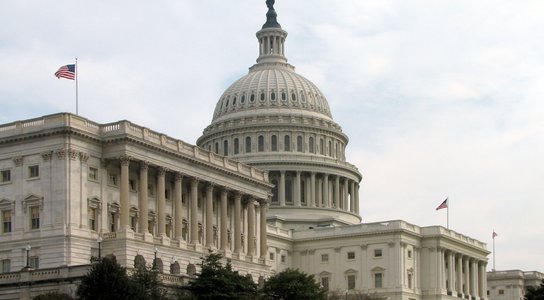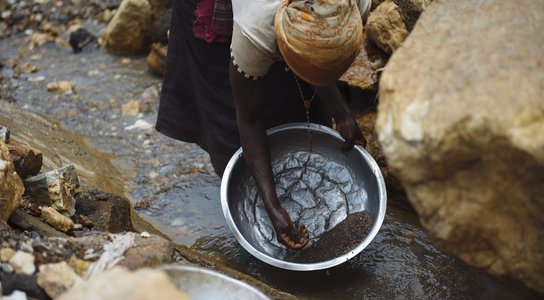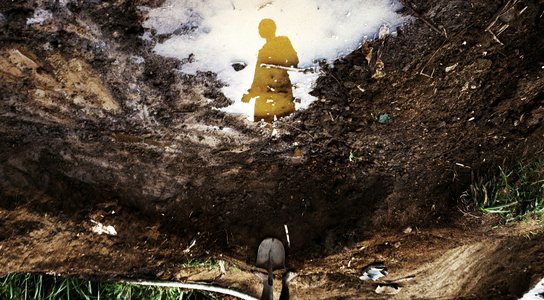Descartes Kitungano, a 66-year-old miner and father-of-seven from eastern Congo, remembers clearly the day that an armed group burned down his family home. The Forces démocratiques pour la liberation du Rwanda (FDLR) - a predominantly Hutu armed group associated with the Rwandan genocide - descended on his village just over five years ago after hearing of mineral production in the local mines. Thanks to local informants, the residents had time to escape to the nearby forest.
“When we returned we found the houses burnt. We started to construct houses with grass and wood… but life was very difficult,” Kitungano said. “People who had no means to construct a shelter were frightened and fled…I did not flee, I stayed because I’m old and I’m from here. I stayed under a small shelter made of plastic sheeting. From that day, my life has been very difficult.”
Sadly, Kitungano’s story is not unique. Numerous armed groups have operated in eastern Congo for more than fifteen years, often preying on the region’s rich mineral sector. They have taxed and traded minerals to help fund brutal violence. Millions of people have been displaced within the country, due to armed conflict in the east.
Section 1502 of the 2010 Dodd-Frank Act, better known as the conflict minerals law, was signed in part to break this very link between the trade in minerals and the violent armed groups that profit from it. Just last week, 1,258 companies filed their second conflict minerals reports with the U.S. regulator, the Securities and Exchange Commission (SEC). These filings, required for any U.S.-listed company that uses tin, tungsten, tantalum or gold in its products, are meant to shine a light on corporate supply chains. If done well, these reports are also an opportunity for companies to show their investors and consumers that they are taking steps to ensure their mineral purchases are not fueling human rights abuses – not unlike those which occurred in Kitungano’s village.
Yet, our initial analysis of the second round of reports shows a majority of companies are still failing to put the proper checks in place to identify and mitigate risks along their entire supply chains, as required by the conflict minerals law.
This is disappointing, but unfortunately, not surprising. Global Witness and Amnesty International recently released a comprehensive analysis of the first-ever conflict minerals reports filed last year. We found that almost eighty percent of surveyed U.S-listed companies did not meet the minimum requirements of the law. The vast majority of the companies in our sample failed to conduct meaningful checks, known as due diligence, on their minerals’ supply chain. In fact, in all of the reports, there was room for improvement. While there were a few companies who submitted thorough reports, others submitted reports that were barely a page long, with virtually no details on their supply chain checks. The new reports submitted last week also seem to also vary widely in quality.
The good news is that right along mineral supply chains, the effort to undertake responsible sourcing is growing. Efforts by a small number of companies - notably those engaged in the U.S.-led Public Private Alliance, meeting in Washington D.C. this week - to buy minerals responsibly from countries covered by Section 1502 demonstrate that conflict-free sourcing from these areas is possible. It also shows that there is private sector interest in doing so. These efforts should not be limited to a small number of companies, however: they should be normal and responsible supply chain practice.
Some of the better companies’ reports are starting to use more of the right terminology to talk about their due diligence, but this exercise is not just about telling investors and consumers that the right steps have been taken – it is about showing the public that companies are actively working to identify and address risk from all levels of the supply chain. If companies don’t include this type of critical information in their filings, they run the risk of turning this opportunity into a box-checking exercise.
As in the first year of reporting, we found that many companies’ due diligence is still focused on their direct suppliers; only very few are connecting and engaging with their metal processors to learn about their minerals’ journey from the mine. Trying to figure out what is happening between the mine and the smelter, understanding if minerals are coming from mines controlled by armed men, or whether they’ve been taxed along the trading routes, is the crux of this exercise. By not communicating with their metal processors, companies are missing a valuable opportunity to learn more about their supply chains, and to also conduct more meaningful due diligence.
In future reporting years, companies must carry out deeper investigations along their entire supply chains and provide investors and consumers with detailed information about their findings. They must outline what measures they are undertaking to address any risk they find. Companies should also include an audit of their due diligence. This year, only five companies, including Philips and American Semiconductor, secured independent private sector audits of their due diligence program, which gives investors and consumers an independent assessment as to whether the company’s due diligence is consistent with the international standard.
Supply chain due diligence will not by itself end the conflicts in eastern Congo. But helping to break the link between armed groups and minerals will deprive some groups of significant revenue and remove an incentive to fight. To miners like Kitungano, this matters. “The day when I find minerals in my hand I’m happy because it means that my children are going to eat,” he said. “One of my children who doesn’t have clothes, for example, will get them when I find minerals.”


